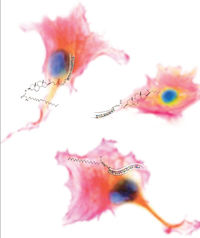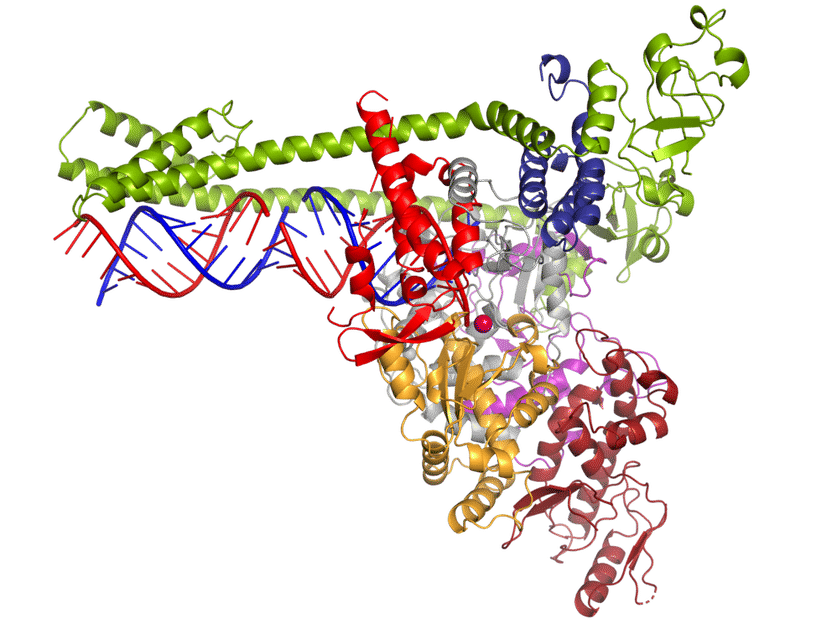FDA approves Genzyme's Fabrazyme®
Product is first treatment available in U.S. for people with Fabry Disease
Genzyme General, a division of Genzyme Corp., announced today that the U.S. food and Drug Administration has granted marketing approval for Fabrazyme® (agalsidase beta), an enzyme replacement therapy for Fabry disease. Fabrazyme is the first treatment approved in the United States for people suffering from Fabry disease, a rare and potentially fatal inherited disorder.
"FDA approval of Fabrazyme is a culmination of more than 30 years of research on enzyme replacement therapy for Fabry disease," said Robert J. Desnick, M.D., Ph.D., professor and chairman of human genetics at Mount Sinai School of Medicine. "This is a great day for Fabry patients in the United States, for the physicians who care for them, and for those who conducted the research to understand and treat this disease."
Fabrazyme has received Orphan Drug designation, which provides seven years of market exclusivity for the product under the federal program designed to encourage the development of treatments for rare disorders such as Fabry disease, for which no therapies have existed previously.
Fabry disease affects approximately 5,000 people worldwide. The average lifespan of patients with the disease is 50 years. The disease is caused by a deficiency of the enzyme alpha-galactosidase A, which leads to the progressive accumulation of lipids-primarily globotriaoslyceramide (GL-3)-within cells of the kidneys, heart, and other organs. Clinical manifestations of the disease include renal failure, stroke, heart disease and debilitating pain. The accumulation of GL-3 in renal endothelial cells is thought to play an important role in renal failure.
Fabrazyme is a recombinant form of human alpha-galactosidase A, which is administered intravenously to replace the deficient enzyme and initiate the breakdown of stored lipids. Clinical studies have shown that Fabrazyme reduces GL-3 accumulations in the capillary endothelium of the kidney and certain other cell types. This reduction of GL-3 accumulations suggests that Fabrazyme may ameliorate disease expression, though the relationship between GL-3 reduction and specific clinical manifestations has yet to be established.
Genzyme conducted an extensive clinical development program for Fabrazyme, which included a Phase 1/2 single-center, dose-finding study that involved 15 patients; a Phase 3 multi-center, double-blind, randomized, placebo-controlled trial involving 58 patients; and a Phase 3 extension study.
Fabrazyme was approved under the FDA's accelerated approval process, which was established for serious or life-threatening disorders such as Fabry disease where a product may provide meaningful therapeutic benefit to patients over existing treatments. Approvals can be granted on the basis of adequate and well-controlled clinical trials establishing that the product has an effect on a surrogate endpoint reasonably likely to predict clinical benefit. A Phase 4 study to verify clinical benefit is required under this mechanism. In January 2001, Genzyme initiated a Phase 4, multi-national, multi-center, randomized, double-blind placebo-controlled study. The study is fully enrolled and includes more than 70 patients. The trial is evaluating the effectiveness of Fabrazyme in the time to clinically significant deterioration in any of the following: renal function, cardiac function, CNS disease, or death.
Genzyme has agreed with the FDA on a number of post-marketing commitments. These include completing the ongoing Phase 4 study in its placebo-controlled form and taking steps to preserve the integrity of this trial. After completing the Phase 4 verification study, Genzyme will regularly evaluate the creatinine levels of those patients through an open-label extension study. Genzyme will also obtain long-term clinical status information on the Fabry population through the Fabry Registry it established two years ago to track the natural history and clinical outcomes of patients with Fabry disease, and complete its ongoing safety and pharmacodynamic study of Fabrazyme in pediatric patients.
"FDA approval of Fabrazyme marks a tremendous milestone in the product's development and reflects more than 15 years of hard work and commitment by many people. This is an exciting moment, and we are proud to introduce the first treatment for patients with Fabry disease in the United States," said Henri A. Termeer, chairman and chief executive officer of Genzyme Corp. "Our focus now is to make sure that Fabrazyme is available to all patients who need therapy in order to help ease the devastating impact this disease has had on them and their families."
Genzyme will launch Fabrazyme in the coming weeks, drawing on more than a decade of experience in bringing enzyme replacement therapies to patients with rare genetic disorders.
The most serious and most common adverse reactions reported with Fabrazyme are infusion reactions. Serious and/or frequently occurring infusion reactions consisted of one or more of the following: increased or decreased heart rate, increased blood pressure, throat tightness, chest pain or tightness, shortness of breath, fever, chills/rigors, abdominal pain, itching, hives, nausea, vomiting, lip or ear swelling, and rash. Infusion reactions declined in frequency with continued use of Fabrazyme; however, serious infusion reactions may occur after extended durations of Fabrazyme treatment.
Genzyme submitted a biologics license application for Fabrazyme to the FDA in June 2000. Fabrazyme was first approved for marketing in the European Union in August 2001 and is now available in 28 countries.
Fabry disease belongs to a family of approximately 40 rare, inherited diseases known as lysosomal storage disorders. Genzyme is leader in the development of treatments for these "ultra-orphan" diseases, all of which affect fewer than 10,000 people worldwide. In 1991, Genzyme introduced the first treatment for Gaucher disease, an enzyme replacement therapy that is now marketed in 60 countries. This year, Genzyme and its partner BioMarin Pharmaceutical Inc. expect to introduce an enzyme replacement therapy for MPS I, and applications to market this treatment are pending in the United States and Europe. Genzyme is also developing treatments for Pompe disease and type B Niemann-Pick disorder.























































